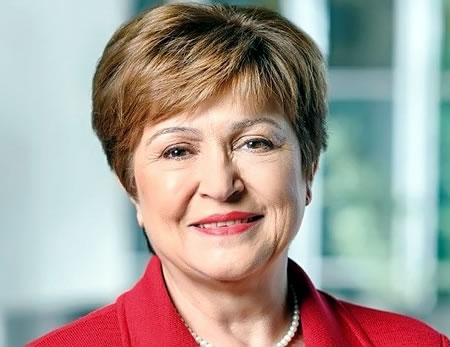THE International Monetary Fund (IMF), at the end of its annual Article IV Consultation with
Nigerian officials welcomed the tightening of monetary policy by the Central Bank of Nigeria (CBN)in January 2020 through higher cash reserve requirements.
The Monetary Policy Committee (MPC) increased the Cash Reserve Ratio (CRR) from 22.5 to 27.5 per cent in its first meeting of the year.
Specifically, the multilateral institution said it endorsed the idea because the move would help respond to looming inflationary pressures while also commending progress on structural reforms — particularly in doing business, finalising power sector reforms, and strengthening governance.
The IMF staff at the end of its annual Article IV Consultation with Nigerian officials from January 29 to February 12, 2020, reviewed Nigeria’s 2020 economic growth forecast lower to 2 per cent from 2.5 per cent earlier forecasted given a rather challenging outlook with oil prices currently trading below $60 a barrel. Bonny Light dropped 15 per cent on average to $56 a barrel in the first half of February 2020 from $66.03 a barrel in December 2019.
The IMF staff summarised that the pace of Nigeria’s economic recovery remained slow, as declining real incomes and weak investment continued to weigh on economic activity. In addition, external risks remained on the increase, reflecting a higher current account deficit and declining reserves that remain highly vulnerable to capital flow reversals. Furthermore, high fiscal deficits continue to complicate monetary policy as weak non-oil revenue mobilisation led to further deterioration of the fiscal deficit, which was mostly financed by Central Bank of Nigeria (CBN) overdrafts, while the interest payments to revenue ratio remains high at about 60 per cent.
On a positive note, staff welcomed measures by Federal Government to boost revenue through the implementation of the Finance Act and Deep Offshore Basin Act and to improve budget execution by adopting the calendar year for the 2020 budget cycle.
Notwithstanding, it called for major policy adjustments to contain short-term vulnerabilities, build resilience, and unlock growth potential.
Experts generally agree with IMF staff’s take on Nigeria’s economic outlook as it reflects current macroeconomic realities, especially against the backdrop of potential weakness in global crude oil prices occasioned by slowing global consumption, partly due to the impact of corona virus (COVID-19).
“We also urge the Federal Government to seek creative ways to share the burden of economic development with the private sector as the current fiscal debt burden has long reached unsustainable levels,” analysts from Cowry Assets Management Limited said.




